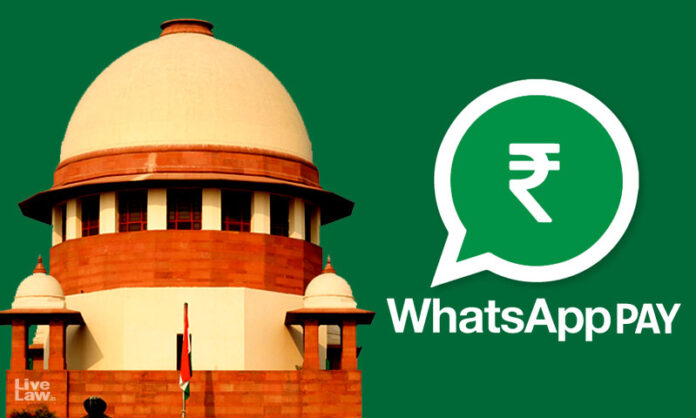RBI has told Supreme Court that WhatsApp cannot start their payment business in India. This came as a result of WhatsApp non-compliance with the data localization norm. At present, they are battling the Israeli Spygate (Pegasus) controversy in India.
RBI stated that WhatsApp which is owned by Facebook is not following the data localization norm and it has asked National Payments Corporation of India (NPCI) to not launch the WhatsApp payments on Unified Payments Interface (UPI).
What is NPCI?
NPCI is an initiative of Indian Bank’s Association, and RBI and its objective are to manage and operate retail payments and settlement systems in India. It was created as per the provisions of the Payment and Settlement Systems Act, 2007 and its mission is to have safe and secure Payment and Settlement Infrastructure in India.
What is UPI Payment?
It is an instant payment method that was developed by NPCI and regulated by RBI. It allows the speedy, inter-bank transaction without any one-time password (OTP). It is just 2-step verification, where you have to enter your UPI Pin which you have created when making the account.

UPI is managed by NPCI and saw a massive growth last month, around billion of transactions are done using UPI since its launch.
Centre for Accountability and Systemic Change a think tank has filed a petition in SC early this year, wherein they have challenged the working of WhatsApp. RBI was also made a party to the petition, and their ground of challenge includes their compliance standards and not having a local officer in India.
In response, Will Cathcart who is the global head of WhatsApp said that they are in compliant with the norms and they are waiting to launch WhatsApp payment in India as India is their most significant business market with over 400 million users.
As quoted in Times of India, RBI said, “The RBI has examined the said reports (by NPCI) and the responses of NPCI and is of the considered view that WhatsApp is storing the following payment data elements outside India beyond the permitted timelines indicated in the circular and frequently asked questions (FAQs) on storage of payments system data issued by RBI on June 26, 2019,”
RBI has informed that WhatsApp is taking detailed personal information of people which includes their transaction ID, retrieval reference number and other data and storing it outside India.

Additionally, other concerns revolving around WhatsApp is that there is a widespread increase of circulation of fake news, questionable content and other misinformation that is affecting the national security from the platform. There are other similar complaints against the application as it is also used to spy on individuals. The Ministry of Electronics and Information Technology is working to formulate regulation for the social media application and platform, which includes WhatsApp traceability.
Although, WhatsApp has sued Israel’s NSO group in the District Court of U.S. for placing Israeli Spygate (Pegasus) on their users account, this issue has raised serious security issue for the users.

